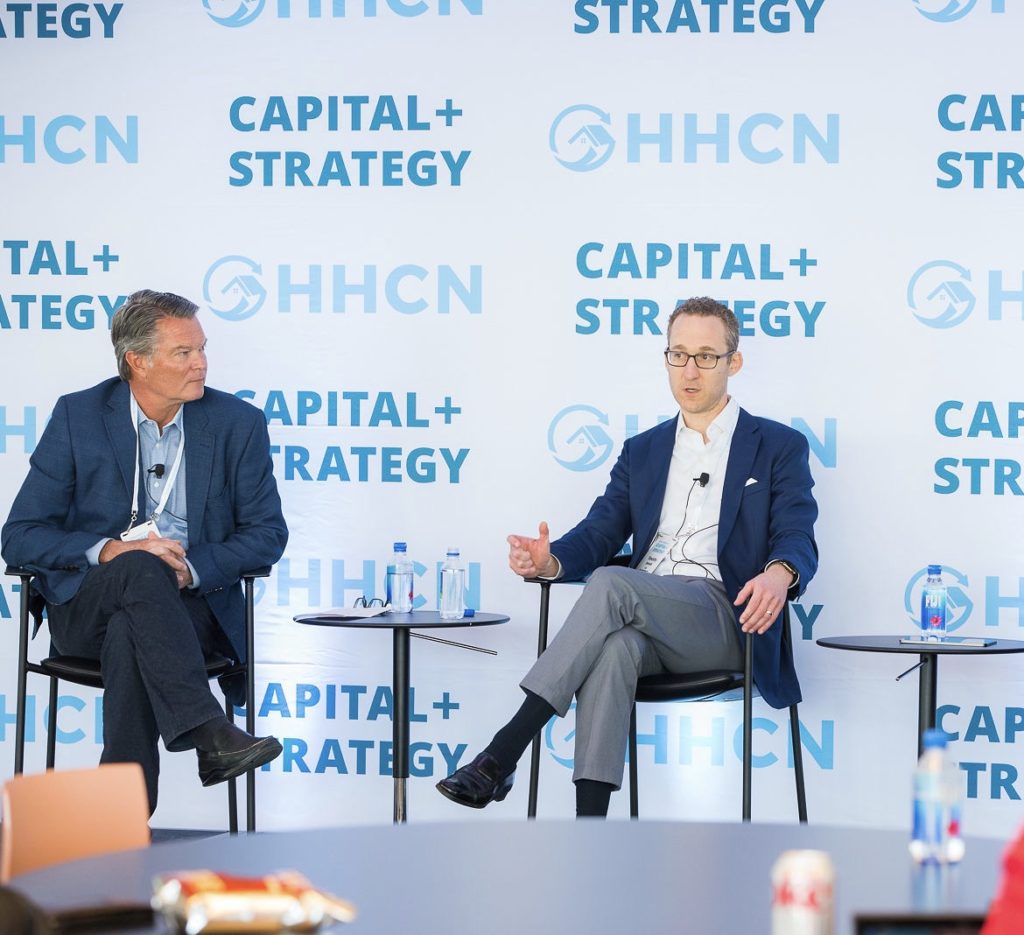Many home-based care organizations want to rely less on fee-for-service payment models and step into the value-based care space. While this is easier said than done, a few providers have been able to make significant strides in regard to value-based care relationships.
At Care Advantage, value-based care makes up roughly a third of the company’s book of business.
In 2020, Care Advantage joined forces with Anthem to launch a pay-for-performance pilot program. The program — which focuses on Anthem’s sickest and frailest Medicaid members in Virginia — is based on four key measures. These measures include in-patient utilization, ER visits, caregiver continuity and member-satisfaction scores.
“We ended up getting a data algorithm feed from Anthem, … and essentially we stratified the top 25% sickest and frailest of the shared membership,” Tim Hanold, CEO of Care Advantage, said during a panel discussion last month at Home Health Care News’ Capital+Strategy conference. “We called it our high-touch program. We have monthly rounds between our clinicians, our nurses and their care coordinators, which made a world of difference.”
As a company, Care Advantage offers a variety of home-based care services to patients across Virginia, Maryland, Washington, D.C., and Delaware.
It originally took some time for Care Advantage to enter into its current partnership with Anthem, according to Hanold.
“It was a very slow, methodical-type pace,” he said. “We were fortunate to get the ear of DMAS in the state of Virginia. We were talking about how to take this discussion of going from fee for service and getting paid by the hour to something that was meatier towards value-based care. It takes these small little progressions over a period of time to chisel away at it. They had us present in front of the six MCOs in Virginia.”
After this presentation, Anthem was the first organization that was eager to move things forward.
In the next five years, Care Advantage sees value-based care making a higher percentage of its book of business.
“I see a higher percentage, but I don’t see it being 100%,” Hanold said. “I think limiting the amount of risk I’d eventually put on the table will be important because we need to see a much higher upside of the claim savings.”
Moving forward, Hanold is already envisioning the next stage in its value-based care strategy.
“The next stage of this is tapping into the duals as much as possible because that’s where there’s going to be more dollars to leverage,” he said.
Addus sees ‘value’ in value-based arrangements
Though value-based care makes up a much smaller portion of Addus HomeCare Corporation’s (Nasdaq: ADUS) book of business, these relationships have been an overall benefit to the company.
“The shared savings and value-based payments that we receive are just not material, in and of themselves,” Darby Anderson, executive vice president and chief strategy officer at Addus, said during the panel discussion. “We’re doing this in conjunction with payers that are paying us for fee-for-service and direct care provision, but the actual value-based side of it is pretty low. We value these relationships because it’s moving us forward in proving outcomes, getting data — the trajectory of moving forward into other states with other payers.”
Frisco, Texas-based Addus is one of the largest personal care and in-home care services providers in the nation, with 211 locations across 22 states.
One example of the headway Addus has made with value-based care is the company’s arrangement with Presbyterian Health Plan in New Mexico.
Broadly, the arrangement is a facility discharge, 90-day transition support program. The goal of the program is to avoid rehospitalization or re-institutionalization.
“We do benefit from the additional home health services primarily, but we do also have physician house calls in New Mexico as well,” Anderson said. “It’s very helpful for us to have all the tools to really help those people manage those transitions.”
Since entering this relationship, Addus has learned the importance of keeping Presbyterian Health Plan engaged.
“You keep it simple,” Anderson said. “Don’t ask too much. You’ve got to get the data and you have to be firm about reporting being timely. Keeping the top leadership engaged and having a champion there [is important] because the IT departments at health plans don’t see you as a priority at all. At the same time, don’t engage and involve them so much that it requires them to do something that inhibits your ability to have that success.”
Looking ahead, Anderson believes there needs to be better alignment of the dual-eligible population – and more integration and coordination of physical health and LTSS services – in order to move the value-based care needle.
He also sees value-based care making up a larger portion of Addus’ business, but not overwhelmingly so.
“Greater, but probably still not a material part of our revenue mix,” Anderson said. “The expectation you should have on this is, as you enter these value-based agreements, you have positive outcomes, you get it to scale — this should help your organic growth rates. If you’re producing better outcomes than your competitors, you should be getting more referrals. That’s an additive value to the whole effort.”




